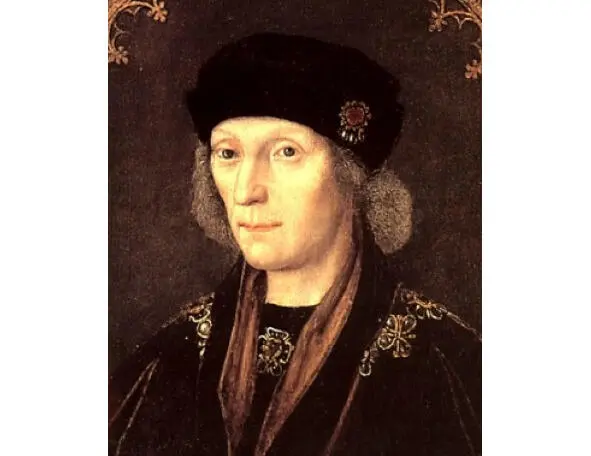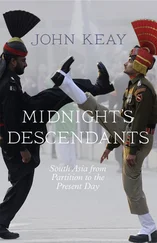After the disaster at Waterloo (it is wrong to sleep during a general battle and send the infantry to march on the cannons) there is still hope for the continuation of this whole story. With the remnants of the army and young recruits numbering one hundred thousand fighters, Bonaparte wins a series of minor victories and arrives in Paris. The workers support Napoleon, the bourgeoisie no longer. The Emperor never sought to rely on the French working class or the Russian peasantry in order to consolidate the gains, revolutionary in a good sense at first. In addition, having lost 1.2 million of its soldiers, 28 million France is simply bled out of blood. More and more allied troops are striving for Paris. Their number reaches one million. With two frigates, the emperor is trying to leave for America, towards new adventures. At sea, his ship is blocked by an English squadron. Napoleon surrenders to the British at the Bellerophon and, according to official history, ends his days on the island of St. Helena in 1821
…Napoleon François (1811 – 1832), aka «Eaglet», Napoleon’s son, the unloved child of Mary of Austria de jure rules 14 days, therefore it is officially considered Napoleon II. Presumably, the boy was poisoned by those monarchical circles to whom he caused a lot of trouble just by his existence.
Napoleon III, Charles-Louis (1808 – 1873) ends a short dynasty on a fairly high note. Son of the brother of Napoleon the First and stepdaughter of Bonaparte. The first president of the Second French Republic, then like his uncle – again, the Emperor of France. The nominal idea is «one rules at the will of the people.» In 1859, in a bloc with Sardinia and the Garibaldians, Charles-Louis took away the territorial Italian provinces of Nice and Savoy from Austria. With allied England, he made two unsuccessful attempts to capture Mexico. The monarch provokes a war with a united Germany in 1870, which entails the creation of the Paris Commune and the occupation of the country by foreign troops. Napoleon III dies in England, after a long stay in German captivity.
Dynasties of England and Great Britain
…After the collapse of the Western Roman Empire, the Germanic tribes of the Angles and Saxons, under the leadership of the chiefs – kings, landed in England. The base of the conquerors is the southwestern part of England, almost the Wessex Peninsula. Local Britons, who had forgotten how to fight during the Roman rule, moved to the north of France. Or, having received the derogatory name «Curls», they remain in order to faithfully serve the foreign lords – the «bread lords».
…The Wessex dynasty ruled the kingdoms of foggy Albion from the eighth to the middle of the tenth centuries. The ceremonial alternation of local kings is interrupted by William the Conqueror, a native of continental Normandy. He breathes new life into the Norman dynasty. It was founded in 911 by the Norwegian Viking Rollon.
After a century, the Saxons lose their original extensive liberties and turn into villans performing unlimited duties. However, thanks to military service, some of them become free people, «Freemen» and «freeholders» – «free farmers».
In 1100, elected king with violations of the right of inheritance, to attract the sympathies of the feudal lords, the church and all how much influential free people, Henry the First presents the first edition of the Charter of Liberties. The obligations of the state and the individual, legal proceedings, taxes are streamlined. This proclamation is successful, overgrown with additions, up to the appearance on the throne of John Lackland (1199). The reforms of this monarch boil down to the establishment of royal tyranny, extortion for wars, sometimes not even begun, mind-boggling fines, and restricting the movement of the country’s inhabitants. In 1207, the monarch expelled the head of the Church of England, appointed by the Pope, and received personal excommunication. Unbaptized children, illegitimate marriages, have the right effect on the British. The top authorities are losing the fight against the Roman Church and the people. Thanks to this confrontation, by 1215, England becomes the first country of law and law on the planet.
The basis of English legislation to this day is the principle of the subordination of power to law under the threat of a legitimate armed rebuff from the people.
…Plantagenets. They have ruled since 1154. The most famous representative of the dynasty is Richard the Lionheart. In the third crusade, King Richard approaches Jerusalem, already determined to surrender. But, concerned about the internal political problems of his country, the king misses his chance.
About the Crusades themselves, we can say that for many reasons, their meaning and significance are denigrated. Before Catholic Europe reacts, the Arabs take over the originally Christian, Syria, Palestine and Egypt. Asia Minor and Spain fall into the shadow of the Islamic conquest. Units of knights and people’s militia stop this pressure.

Tombstone of Richard the Lionheart (1157—1119). «There are no knights. There is a trace of rust on the weapon. The souls of these warriors left the light»
The dynasties of England and France are mixed. To say: «In such and such a period England is ruled by the Plantagenet dynasty» is not entirely correct. Thus, the Hundred Years War, lasting one hundred and sixteen years, was started by the English king Edward III (1312—1377), due to its belonging to the more French Capetian.
The nodal battles of the war, the battles of Crécy, Poitiers and Agincourt, are similar. French troops overtake the small English invading army. The weary knights, urged on by the orders of the impatient king, enter the battle from the march. They are shot from two-meter bows and finished off by British riflemen.
After ten years of this carnage, a plague epidemic breaks out (peak of the epidemic in 1348). Residents are cramped in the besieged cities. They don’t care about hygiene in principle. The streets are full of filth. «Black Death» takes up to half of Europeans, undermining its social hierarchy and even religious foundations.
After such a terrible respite, hostilities are resumed.
Many people in northern France already consider themselves British. French nobles introduce additional taxes. This move leads to Jacquerie, the uprising of «Jacques-simpletons», much more powerless than the English farmers. In the first half of the fourteenth century, the fighting spirit of the French, their national identity was revived by Jeanne d’Arc. England is deprived of all possessions on the continent. The last of her hands is the port de Calais, at the narrowest part of the Channel.
But, the British, whose country, in contrast to the loss of two-thirds of the inhabitants of France, is in perfect order, want the continuation of the lists. A branch of the Plantagenet dynasty, the Yorkies, vie for the crown at the House of Lancaster. A thirty-year rivalry between the red (Lancaster) and white (Yorkie) emblematic roses begins.
In the middle of the fourteenth century, after the death in battle of the last king from the Lancaster, Richard III, and the announcement of the heir to the House of York illegitimate, the war-weary English society crowns Henry the Seventh Tudor.

Henry the Seventh Tudor, King of England and Sovereign of Ireland, founder of the dynasty (1457 – 1509).
Lancaster blood flows in his veins. He marries Elizabeth of York (of course, York), and thus unites the warring dynasties. The new Tudor emblem combines red and white in a single rose. The next twenty-four years of his reign are celebrated in the history of England as a general idyll. The peasants are becoming free en masse. Serf dependence is replaced by land dependence. The amount of government duties is strictly fixed. Estates find a common language on the basis of religion and financial success. However, the era of Good Old England ends with the ascension to the throne of Henry VIII. For the sake of marriage with Anne Boleyn and an easy divorce from the annoying former wife, the king issues a law to change the state religion. The principle begins to work: whose power, that is the faith.
Читать дальше














